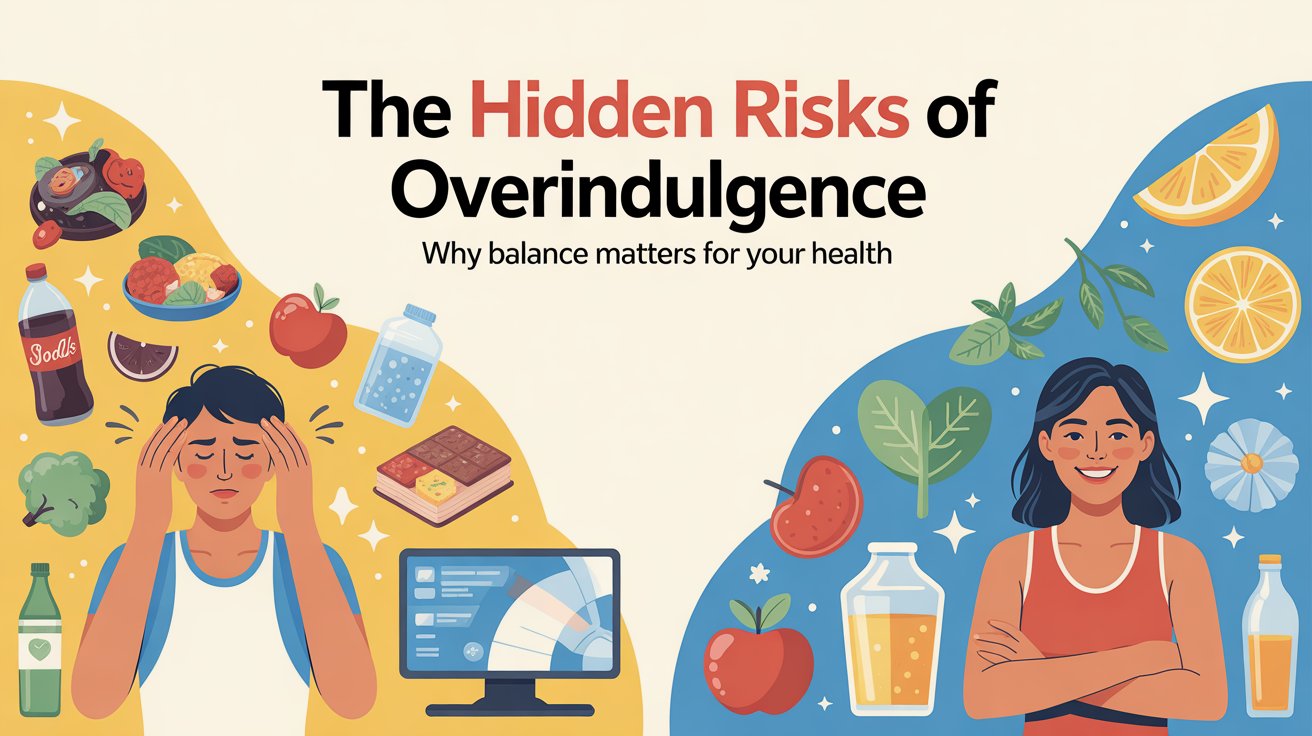In today’s world, it’s easier than ever to give in to our cravings. Whether it’s sugary snacks, fast food, endless scrolling on social media, or late-night streaming, the temptation to indulge without limits is always around us. While enjoying what you love in moderation is perfectly fine, overindulgence—also known as intemperance—can quietly harm your health and overall well-being.
What Does Overindulgence Really Mean?
Overindulgence is not about enjoying life’s pleasures. Instead, it’s about losing balance and control. It’s when the desire to consume, whether food, drinks, or even digital content, takes priority over your long-term health. In the short term, it may feel harmless. However, over time, it creates unhealthy patterns that can lead to physical, emotional, and mental struggles.
The Hidden Risks for Your Body
Firstly, let’s look at physical health. When you constantly eat everything you crave without limits, your body pays the price. Excess sugar, fats, and processed foods can increase the risk of obesity, diabetes, high blood pressure, and heart disease. In addition, overeating can make you feel sluggish, affecting your energy and productivity during the day.
Moreover, overindulgence is not limited to food. Spending too much time sitting in front of screens, for example, can contribute to poor posture, vision problems, and lack of physical activity. These small daily habits slowly build up and silently harm your health.
The Emotional and Mental Side Effects
Secondly, we cannot ignore the emotional cost of overindulgence. Eating excessively or constantly chasing instant pleasures often leads to guilt, anxiety, and frustration. Instead of feeling satisfied, many people feel trapped in a cycle of temporary comfort followed by regret.
Furthermore, intemperance affects discipline and self-control. When you always give in to desires, it becomes harder to say “no” in moments that truly matter. Over time, this lack of control weakens resilience and makes it more difficult to maintain healthy routines.
Finding Balance Through Moderation
The good news is that balance is possible. The key is not to completely deny yourself what you love but to practice moderation. Start by paying attention to your body’s signals. Ask yourself: Am I really hungry, or am I just bored or stressed? By being more mindful, you can enjoy your favorite foods or activities without letting them take over your life.
Another important step is setting limits. For example, if you love sweets, enjoy them occasionally but avoid keeping large amounts at home. Similarly, if screen time is an issue, create “digital breaks” during the day where you disconnect and move your body. Small adjustments like these make a big difference over time.
Why Balance Is the Real Key to Health
Ultimately, health is not about extremes—it’s about balance. By practicing moderation, you protect your body, preserve your emotional stability, and strengthen your self-control. You don’t need to stop enjoying what you love, but you do need to avoid excess. Remember, a balanced life not only improves physical health but also gives you energy, clarity, and peace of mind.
In conclusion, overindulgence may seem harmless in the moment, but its hidden risks build up over time. By choosing balance and moderation, you’re investing in a healthier, stronger, and more fulfilling future.


Leave a Reply